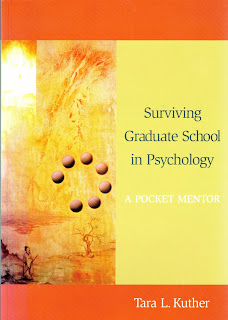What is a recommendation letter?
All graduate programs require that applicants submit three (usually) recommendation letters. These letters are written by professionals, most often professors, who can speak to your academic abilities and promise for graduate study.
What makes for a helpful recommendation letter?
Don’t ask just anyone to write on your behalf. An effective letter is written by a professor who knows you, especially outside of class. Sure, I write letters for students who I know only from class, but those letters generally lack the detail that comes with additional experience and exposure to the student. It’s those details that grad admissions committees want. So, what’s a helpful letter? A detailed letter with specific examples illustrating a student’s strengths. I need to know you to be able to write that letter. What do I need to write your letter?
Here are some ideas for info to give me: Not all are appropriate for every student and many students find that they only have a few items on this list. Pick what makes sense for you.
- What classes have you taken with me and when? Especially important after you have graduated.
- If you've graduated, how have you been spending your time? What do you do? Why are you going back to school?
- Sample paper, ideally from my class.
- What field you’ve chosen and why?
- Where you’re applying and why?
- Coursework that’s relevant to your application
- Research experiences
- Internship or applied experience
- Work experience
- Resume or CV
- Admissions essays
- Explanation of your career goals – what is it that you want to do and how will grad school get you there?
- What can you offer grad programs? What skills do you have that a professor might find helpful?
- What do you want me to know? Is there something special you want me to highlight?
I advise students to think of the Jedi mind trick during the graduate admissions process: Tell them (profs and committees) what you want them to think. Subtly. When and how should you ask me?
When to ask for a letter: Generally, don’t ask me before class – or in the classroom at all. Those times usually are way too busy for us to chat. Come by my office either during office hours or email and we can set a time. You could also email to let me know that you’d like to ask for a letter – AND then come by my office to speak about it. It’s always useful to have a head’s up, so that’s my preferred method. If you’ve graduated, an email is perfectly ok.
Ask me as early as you can, at least a month ahead of time.














